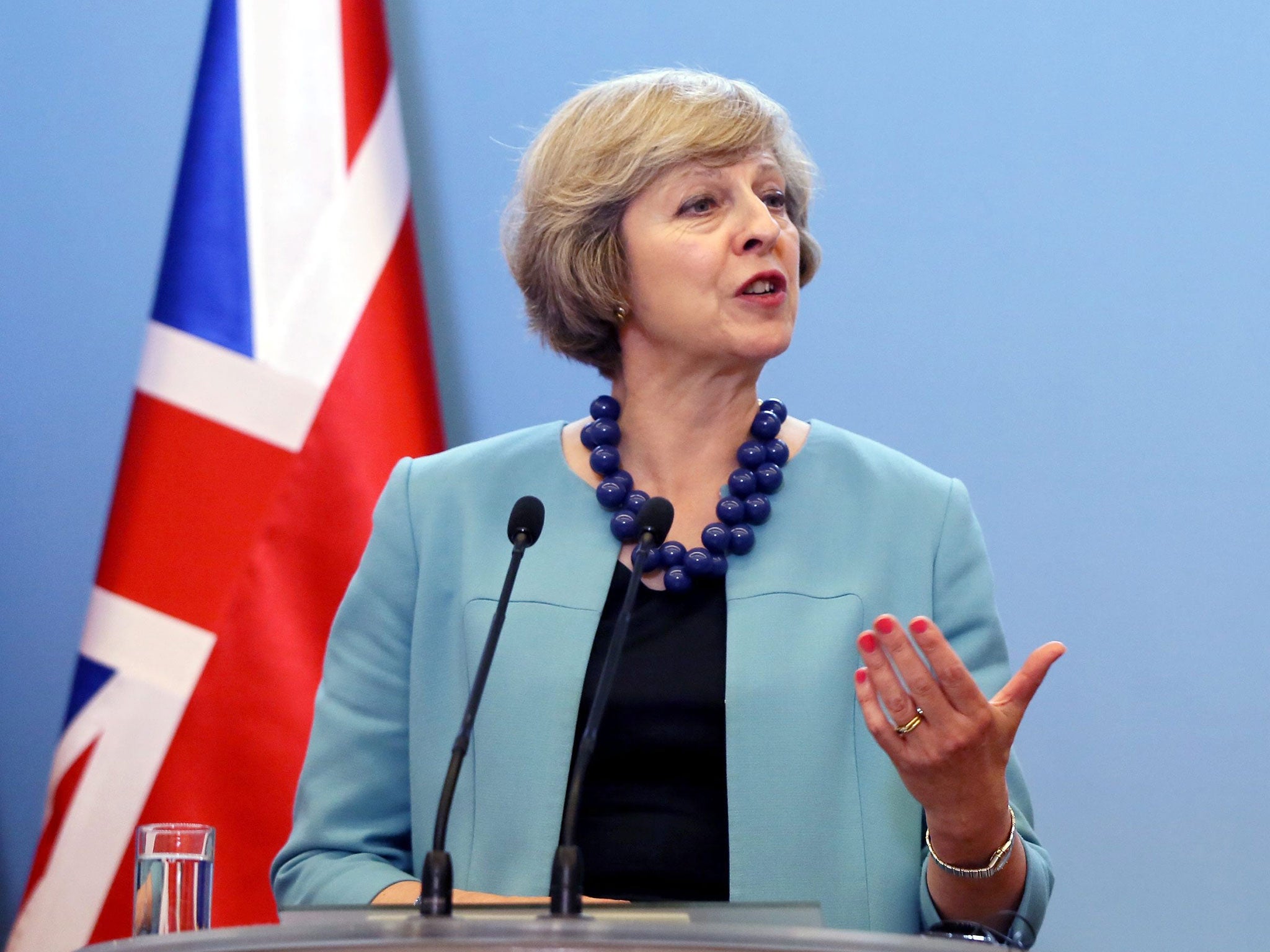If Theresa May doesn't switch spending from pensioners to young people quickly, intergenerational unfairness will break Britain
For the first time, pensioner incomes are higher than those for working age households. And the policies May has inherited from David Cameron and George Osborne will make the generation gap even wider


“We will make Britain a country that works not for a privileged few, but for every one of us,” Theresa May said outside Number 10 on becoming prime minister. To turn her rhetoric into reality, May will have to bite the bullet by tackling the biggest problem in her in-tray after Brexit: the divide between the old and the young.
For the first time, pensioner incomes are higher than those for working age households. Since the 2008 financial crisis, typical pay for twentysomethings has fallen by 12 per cent.
The policies May has inherited from David Cameron and George Osborne will make the generation gap even wider. State benefits for people of working age have fallen by 10 per cent since the crash and have been frozen for the next four years. The higher inflation forecast after the Brexit vote would make this cut deeper. In contrast, pensioner benefits have been maintained at their 2009 level, and the basic state pension will continue to rise by at least 2.5 per cent a year under the “triple lock” brought in by the Coalition Government. It increases by average earnings, prices or 2.5 per cent, whichever is higher. The Resolution Foundation think-tank, which has set up a commission on intergenerational fairness, calculates that tax and benefit changes by 2020 will take £1.8bn from millennials and hand £1.2bn to baby boomers.
But when Baroness Altmann, the former Pensions Minister, proposed at the weekend that the “triple lock” be ended, her call was met with predictable howls of outrage – from Labour, the SNP and pensioner groups who pointed out that about 1.5m older people still live in poverty. Downing Street insisted that May would stick to the pledge to keep the “triple lock” in last year’s Tory manifesto.
Altmann’s proposal was not as controversial as the reaction suggested. She wants to end the guarantee after 2020, not to break a manifesto pledge. Her idea is a good one. The way it was shouted down was emblematic of the way policy is made by headline. Conservative politicians regard it as unthinkable to hit the pockets of the over-65s because they are more likely to vote – and vote Tory – than any other age group. So Cameron and Osborne locked themselves into the “triple lock”; there is never a good time to undo a policy like that because there is always another election coming.
I suspect that May will be different. Number 10’s statement only covers the period until the next general election. Her forensic approach to policy, shown by her decision not to nod through the Hinkley Point nuclear power station, could be good news if she applies it to the intergenerational divide.
Younger people have been poorly served by successive governments. The biggest failure of all has been not to build enough homes. No one decided to wage war on younger people; it just happened. But there has been a deliberate policy to give better-off pensioners money they do not really need, through the “triple lock”, winter fuel allowances, free bus passes and TV licences. That has widened the gap between them and younger people. Our biggest poverty problem is no longer the elderly but people in work: two-thirds of children growing up in poverty have someone in their household in a job.
It is not true that the baby boomers who have done well out of the housing market are the selfish generation, since they don’t decide government policy. Many worry deeply about the prospects of their children and grandchildren and hand down a lot of their wealth to them. The downside is that this entrenches wealth in the same families. May’s welcome desire to improve social mobility will hinge on the education system. As she admitted: “If you’re a white, working class boy, you’re less likely than anybody else in Britain to go to university." But the real challenge here will be to boost the job and wage prospects of the majority who will still not go into higher education.
The vote for Brexit makes May’s generational challenge even greater. Firstly, the public spending cake is going to be smaller, so any rebalancing between old and young will be harder to achieve. Secondly, the EU referendum has reinforced the divide: 73 per cent of 18-24 year-olds voted Remain, while 60 per cent of those aged 65 and over voted Leave. If the referendum had been held five or 10 years later, it might have gone the other way. As it is, it will fall to the young ones to cope with the impact of a decision taken by their elders.
Any society needs a contract between the old and the young. If May is to complete the bold and ambitious mission she has set herself, she will need to renew this contract before it breaks apart, with dangerous consequences for all age groups.
Join our commenting forum
Join thought-provoking conversations, follow other Independent readers and see their replies
Comments
Bookmark popover
Removed from bookmarks